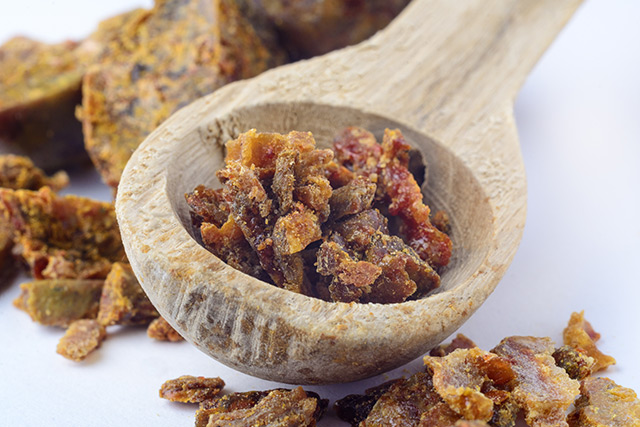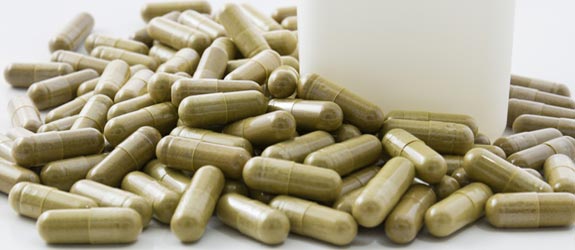The sweet cure: Brazilian propolis can prevent metabolic disorders such as Type 2 diabetes and arteriosclerosis
07/10/2018 / By Michelle Simmons

New research suggested that metabolic disorders, such as Type 2 diabetes and arteriosclerosis, can be prevented with Brazilian propolis. The study, published in the journal BMC Complementary and Alternative Medicine, looked at the protective effects of Brazilian propolis on metabolic disorders in mice.
Brazilian propolis is produced by combining secretions from honey bees with a substance mainly from the plant Baccharis dracunculifolia. It has been widely used in folk medicine due to its anti-inflammatory, anti-viral, tumoricidal, and analgesic effects. (Related: Studies show that bee propolis prevents cancer, boosts immunity, and more.)
A team of researchers at Rakuno Gakuen University, Aichi Gakuin University, and Asahikawa Medical University previously found that propolis ethanol extract improved Type 2 diabetes in a mouse model through the resolution of inflammation due to fat. In the latest study, the research team wanted to distinguish the immunosuppressive cells directly induced by propolis extract and assess the flavonoids that induce such cells.
In conducting the current study, the team administered a dose of 100 milligrams per kilogram (mg/kg) ethanol extract of Brazilian propolis to lean and high fat-fed obese mice twice a week for one month. After that, they used flow cytometry (FACS) analysis to monitor immune cells in visceral fat and the peritoneal cavity.
Brazilian propolis ethanol extract and its constituent compounds were also administered in isolated macrophages and macrophage-like cells. The team then investigated the expression of immune suppressive myeloid markers. M1 macrophages produce pro-inflammatory cells, contributing to fat inflammation.
In addition, the obese mice received kaempferol, one of the identified compounds of the Brazilian propolis. Then, the team conducted FACS analysis on fat.
Based on the results, the treatment of Brazilian propolis promoted myeloid-derived suppressor cells (MDSCs) in the fat and peritoneal cavity of both lean and obese mice. This indicated that Brazilian propolis can prevent the onset and the progression of Type 2 diabetes.
On the other hand, in vitro results indicated that the treatment of Brazilian propolis extract directly caused cultured M1 macrophages to convert into MDSCs. Moreover, kaempferol treatment also resulted in the accumulation of MDSCs in the fat of mice.
Based on the findings of the study, the research team concluded that Brazilian propolis can be used to prevent diabetes and inflammation by promoting MDSCs in fat.
Other things you can do to prevent metabolic syndrome
Metabolic syndrome is a group of factors that increases the risk of health problems, such as heart disease, diabetes, and stroke. It is considered metabolic syndrome when any three of the following are present:
- High blood sugar
- Low levels of good cholesterol in the blood
- High levels of triglycerides in the blood
- Large waist circumference
- High blood pressure
You can prevent metabolic disorders by doing the following:
- Maintain a healthy weight – Moderate weight loss can help the body to restore its ability to recognize insulin and significantly reduce the risk of the syndrome turning into a more serious illness. This can be done through diet and exercise.
- Eat healthier – Following a diet rich in fruits, vegetables, whole grains, skinless poultry, lean meats, and non-fried fish can help prevent metabolic disorders. In addition, try to avoid processed foods, as they are rich in saturated and trans fats, sodium, and sugar.
- Be physically active – One of the risk factors for the development of metabolic syndrome is a sedentary lifestyle. Perform a minimum of 150 minutes of moderate exercise every week. You can divide this into several sessions throughout the day to reach your goal. You can start by walking, which is the easiest way to get moving. You can also try other exercises that get your heart rate up.
Read more news stories and studies on preventing metabolic disorders by going to AlternativeMedicine.news.
Sources include:
Tagged Under: alternative medicine, Brazilian propolis, chronic inflammation, diabetes, honey bees, kaempferol, metabolic disorders, metabolic syndrome, metabolism, natural cures, prevention, Propolis, Type 2 Diabetes




















